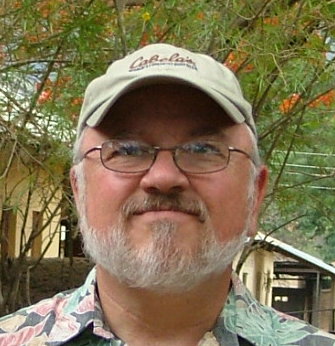For most of my life I have had to tiptoe through a mine field known as Sunday morning worship. My mother and my sisters and I all sang in the church choir. Since I was a fairly good boy soprano, I was invited to join the adult choir when I was only 10 years old. At first that seemed like a high honor, but the luster of that honor began to fade when I realized that singing in the adult choir meant that I had to sit up straight and pretend to listen to the sermon. Yawning, talking and reading comic books were all forbidden. Sleeping was completely out of the question, except for my Dad who sat in a pew close to the front of the sanctuary with his back to the rest of the congregation. Only those of us in the choir loft could see that Dad's eyes were closed. One of my more painful childhood memories was the fear that my Dad would fall asleep and start snoring. The fear of Dad snoring, right there in front of God and everybody, caused me to pray with a sense of urgency that no 10 year old should have to pray with. Every Sunday Dad's head would begin to bob forward, but thanks to my fervent prayers, he never fell into a deep sleep. God answers prayer. Thanks be to God!
As a child, it didn't take long to figure out that worship was a staged performance for the benefit and enjoyment of the spectators in the pews. It honestly never occured to me that worship had much to do with God. It was something that musicians, liturgists and preachers did for the benefit of the congregation. Because of that, the worship experience must appeal to the tastes and earn the approval of the worshippers. This thinking was confirmed when I was a music major in college and took a job as the choir director of a large church in the suburbs of Philadelphia. One Sunday I brought the choir out of the choir loft and placed the singers around the sanctuary. I thought it was pretty cool until the music and worship committee reprimanded me and warned me to never try anything like that again. I foolishly defended my actions by saying, "I don't think Jesus would have minded." Bringing Jesus into the discussion infuriated the chairperson of the committee whose reply was swift and to the point, "Well mister, Jesus doesn't sign your pay checks." My thanks to Matt Redman for reminding us that worship isn't about us, it is all about Jesus. His song, The Heart of Worship challenges us to move beyond the mere repetition of rituals and invites us to press into the heart of Jesus. That is what's at The Heart of Worship:
When the music fades and all is stripped away
And I simply come
Longing just to bring
something that's of worth
That will bless Your heart
I'll bring You more than a song
For a song in itself
Is not what You have required
You search much deeper within
Through the way things appear
You're looking into my heart
I'm coming back to the heart of worship
And it's all about You All about You, Jesus
I'm sorry, Lord, for the things I've made it
When it's all about You
All about You, Jesus



